Our Schools
Most of us are familiar with the famous legend of Hamline, the Pied Piper. Dressed in multicoloured clothing, he had a special pipe that hypnotised innocent children, trapping them all into momentary musical pleasure. Their parents did not have the power to stop him; naturally, they watched children walking after him under his spell.
Pied Piper has evolved from simply being a legend to becoming a part of our everyday lives in the 21st century. Instead of the melody, our children are hypnotised by the extravagant virtual world. Today the internet has seeped into our lives, profoundly influencing and affecting almost all our everyday activities. Therefore, it has taken a deviation from utility to necessity. On the brighter side, it has transformed the world into a close-knit community while inviting the vulnerable section of the society into the darker side of cyberspace.
According to UNICEF, more than 1/3rd of children in over 30 countries have experienced cyberbullying, and 1/5th have skipped school. Over 80% of children in 25 countries have felt imperilled by online exploitation.
Although there are downsides to excess internet usage and visibility, with caution and limitation, children can safely surf and learn, know and discover various aspects, which would have been impossible without the internet.
What can you do as a parent to protect your child from cyber threats?
Protecting children from danger is innate in parents. Whether holding hands while crossing the road or choosing a school with a safe and stimulating environment, you should take all the appropriate steps, and the same can be done in the cyber world.
- Observe
Observe your children and analyse the time spent browsing. Analyse how much time they spend learning a new skill or entertainment for educational purposes. Be cautious of their changing behaviour pattern, as when one is addicted becomes impulsive and restless.
- Have a conversation
Narrate a few case studies not to scare them but to inform them of cyberbullying, phishing, trolling, scamming, identity theft and more. Have a chat regarding smart usage and share a few things you have learnt or discovered on the internet.
- Set ground rules
Establish ground rules concerning screen time and dos and don’t, such as sharing certain photos or information on the internet without prior consultation. More importantly, guide them through virtual empathy; children will be more sensitive, mindful and respectful towards others online.
- Enable parent control
Enabling parental control will help you set online curfews and keep you updated on online activities, such as browsing time and content accessed. A few applications will allow you to set a timer; if your child surpasses the appointed time, it blocks the computer/application.
- Giving Your Children Trust And Respect
Allowing your children some space to explore, trust and respect them as they use the internet is essential since it will help them open up and share any problems they face.
Here are a few internet safety tips for kids:
- Be informed of cyber threats such as bullying, phishing, scamming, identity theft and more.
- Do not tolerate bullies or hackers, or blackmailers. Take immediate action by reporting or blocking. If nothing works, take the parents’ assistance.
- Do not respond to emails or texts from strangers.
- Do not click on unknown links or open attachments.
- Never accept to meet anyone you meet online.
- Do not share your private information with anyone online.
Virtual protection for your children should be your top priority in a world with extensive internet usage.
We at Ekya schools emphasise that the dangers possessed by the dark side of the internet are unforeseeable. Our expert teachers take the necessary precautions to build a safe and fun learning environment for your children.
What Is Your Parenting Style?
- Authoritarian or Disciplinarian
- Authoritative or Democratic
- Neglectful or Indifferent
- Permissive or Indulgent
What Type Of Parent Are You?
- The Authoritarian Parent
- get overly reliant on parents
- become insecure with low self-esteem
- throw temper tantrums
- experience behavioural problems
- have poor socio-emotional and coping skills
- The Authoritative Parent
- are more active, happy, independent, and content
- develop high self-confidence
- exhibit less aggressive or violent tendencies
- behave more rationally
- are more socially competent and securely anchored to their beliefs
- believe in expanding their learning
- The Indifferent Parent
- turn more impulsive
- find it hard to self-regulate
- turn aggressive to demand attention
- grow mature before their age because they need to raise themselves
- The Permissive Parent
- fail to learn to respect rules
- easily manipulate adults into doing their bidding
- exhibit egocentric tendencies and poor self-control
- frequently experience fights and breakups as a result of their inability to deal with social interactions and relationships.
Which Parenting Style Is Most Effective Today?
Well, no one can answer this question with a 100% guarantee. However, early childhood research states that authoritative parenting may yield the best outcomes in children. Just remember that balance is the key! We can raise our kids beautifully by raising ourselves in the process. We, at Ekya Schools, take ownership of your child's learning because we understand the pressure our parents go through, especially during the early childhood and teen years. We firmly believe that parents are major stakeholders in their child's learning process. So, we have thorough one-on-one meetings where our teachers and parents collectively discuss the learning gaps and join hands to apply best solutions for improving children's performance. We also conduct parenting workshops and offer guidance & counselling for our students’ personal and professional development. Get in touch to know how we're your partner in parenting!Which Is The Best School In Bangalore For NRI Children?
Major Criteria For Choosing The Right School
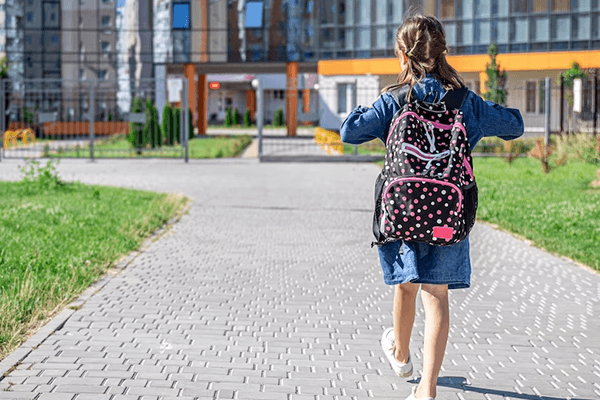
- Leadership Team
 A school is made of people- the management, educators, and staff. Children mostly observe their actions, gestures, and personalities that shape their behaviour and interests. Thus, the right school for your NRI child is where they feel connected, welcomed, acknowledged and allowed the freedom and flexibility to pursue their curiosity. An educational institute led by a seasoned and visionary leadership team builds a strong ethos based on values like empathy, gratitude, grit, respect, etc. Their vision inspires young minds to ‘make a positive difference’ in the world.
A school is made of people- the management, educators, and staff. Children mostly observe their actions, gestures, and personalities that shape their behaviour and interests. Thus, the right school for your NRI child is where they feel connected, welcomed, acknowledged and allowed the freedom and flexibility to pursue their curiosity. An educational institute led by a seasoned and visionary leadership team builds a strong ethos based on values like empathy, gratitude, grit, respect, etc. Their vision inspires young minds to ‘make a positive difference’ in the world.
- Environment
 Students develop best when they grow in a safe, affectionate, and stimulating environment, which supports exploration, growth, and learning. Parents should choose a school that ensures the physical and emotional safety of students and where the staff is sensitive to their socio-emotional needs. It's important to check on-campus safety measures for toddlers (like CCTVs, GPS-enabled transport, anti-skid staircases, etc.) when searching for the best kindergarten and Montessori schools in Bangalore.
Students develop best when they grow in a safe, affectionate, and stimulating environment, which supports exploration, growth, and learning. Parents should choose a school that ensures the physical and emotional safety of students and where the staff is sensitive to their socio-emotional needs. It's important to check on-campus safety measures for toddlers (like CCTVs, GPS-enabled transport, anti-skid staircases, etc.) when searching for the best kindergarten and Montessori schools in Bangalore.
- Curriculum and Teaching
 It is recommended that parents select the best IGCSE schools in Bangalore for NRI children, as the IGCSE curriculum is benchmarked to the highest global standards. You can also go for the best ICSE schools in Bangalore or the best CBSE schools in Bangalore that implement an inquiry-driven, skill-based, holistic curriculum to facilitate a love for lifelong learning.
It is recommended that parents select the best IGCSE schools in Bangalore for NRI children, as the IGCSE curriculum is benchmarked to the highest global standards. You can also go for the best ICSE schools in Bangalore or the best CBSE schools in Bangalore that implement an inquiry-driven, skill-based, holistic curriculum to facilitate a love for lifelong learning.
- When the curriculum is curated in-house by experts, it facilitates immersive experiences and meaningful learning opportunities for students. (personalisation)
- An ideal curriculum aims at gradually building on students' existing knowledge (student-centric) and critical life skills like observation, research, decision-making, problem-solving, etc. (skill development).
- It lays emphasis on understanding by design and experimentation (hands-on learning) with age-appropriate and practical time schedules, routines and programmes to ensure future readiness (structured).
- Academics should be balanced with co-curricular activities and provisions for all-round development of little minds (holistic).
- The syllabus and pedagogy (teaching style) have to be universal and futuristic to facilitate overseas learning and employment opportunities (global).
- Students’ learning outcomes should be evaluated on the basis of the honing of skills and application of knowledge (skill-based assessment).
- Infrastructure & Facilities
 The school’s infrastructure and facilities should be appealing and conducive, with appropriate stimulation to support different learning styles. Attractive interiors, comfy seating, and diverse facilities (like libraries, swimming pools, activity clubs, performing arts, different sports arenas, community participation, CSR projects, etc.) motivate children to go to school every day. It encourages greater participation in activities, improves students' focus, and sparks their interest in learning.
Other important factors to consider are your location and budget. It’s recommended to choose a nearby school to cut down on long-distance travel.
The school’s infrastructure and facilities should be appealing and conducive, with appropriate stimulation to support different learning styles. Attractive interiors, comfy seating, and diverse facilities (like libraries, swimming pools, activity clubs, performing arts, different sports arenas, community participation, CSR projects, etc.) motivate children to go to school every day. It encourages greater participation in activities, improves students' focus, and sparks their interest in learning.
Other important factors to consider are your location and budget. It’s recommended to choose a nearby school to cut down on long-distance travel.
Ensuring A Smooth Transition
 Switching schools is a big change for children. They've to leave their old lifestyle and friends behind to settle in an unfamiliar environment. It is hard to cope with new cultures, routines and learning patterns. Open communication and emotional support are keys to successful transition. Parents should maintain consistent communication to ensure preparedness. Introduce little tweaks in the child’s routine to help them settle and be open to listening and accommodating their feelings. Also, ensure they're thoroughly familiar with the city, neighbourhood, and school before starting a new phase.
Switching schools is a big change for children. They've to leave their old lifestyle and friends behind to settle in an unfamiliar environment. It is hard to cope with new cultures, routines and learning patterns. Open communication and emotional support are keys to successful transition. Parents should maintain consistent communication to ensure preparedness. Introduce little tweaks in the child’s routine to help them settle and be open to listening and accommodating their feelings. Also, ensure they're thoroughly familiar with the city, neighbourhood, and school before starting a new phase.
A Look At Different Grades and Learning Programmes
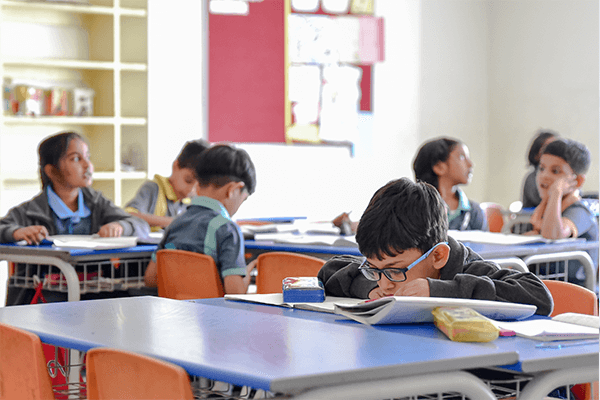 Parents can enrol their children in:
Parents can enrol their children in:
- Early Years (Pre-nursery to Kindergarten):
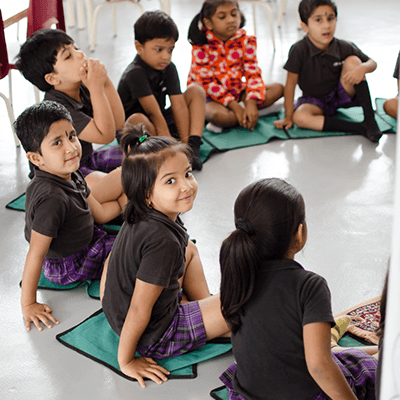 Search for a pre-primary programme that builds a happy, solid and resilient foundation for your toddler’s learning.
Search for a pre-primary programme that builds a happy, solid and resilient foundation for your toddler’s learning.
- Elementary School (Gr. I to V):
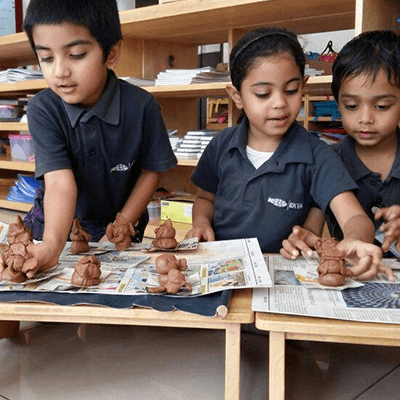 The elementary programme of the best primary schools in Bangalore aims at expanding students' knowledge, generates social awareness, and ensures all-round development through physical, mental, social, emotional, intellectual and ethical learning experiences.
The elementary programme of the best primary schools in Bangalore aims at expanding students' knowledge, generates social awareness, and ensures all-round development through physical, mental, social, emotional, intellectual and ethical learning experiences.
- Middle School (Gr. VI to VII):
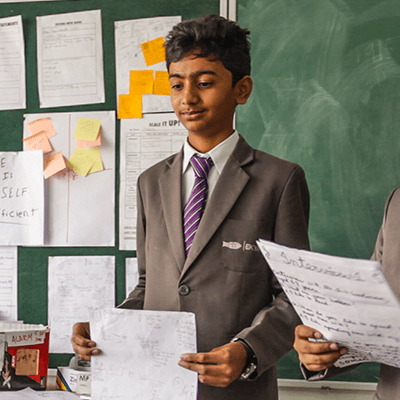 Curriculum in the middle years should challenge students to think outside the box, expand their understanding, and apply theoretical knowledge in a real-life context. Go for institutions that develop a deeper understanding of technology, various languages, sciences, and mathematics, etc.
Curriculum in the middle years should challenge students to think outside the box, expand their understanding, and apply theoretical knowledge in a real-life context. Go for institutions that develop a deeper understanding of technology, various languages, sciences, and mathematics, etc.
- Senior School (Gr. IX to XII):
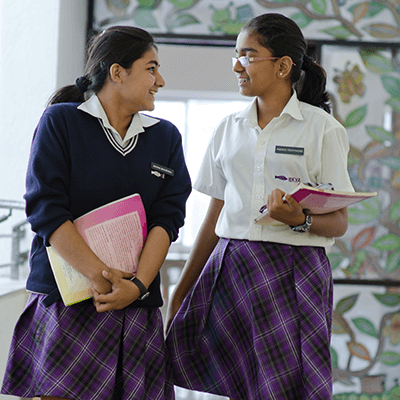 The senior classes should help develop your child's intellectual expertise and prepare them for higher education. Choose an institution that provides greater exposure and viable career options, builds professional skills, and helps students understand varying perspectives.
The senior classes should help develop your child's intellectual expertise and prepare them for higher education. Choose an institution that provides greater exposure and viable career options, builds professional skills, and helps students understand varying perspectives.
What Is The Best Syllabus For NRI Students?
 The choice of syllabus depends on the expectations and learning goals of students. There are four options available in India.
The choice of syllabus depends on the expectations and learning goals of students. There are four options available in India.
- IGCSE (International General Certificate of Secondary Education):
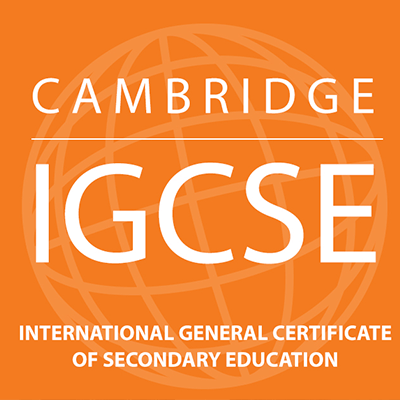 Enrolling in the best IGCSE schools in Bangalore secures students’ chances of getting admitted to an overseas college or university. Since the syllabus complies with global standards, it’s easier for students to pass international exams (like IELTS, TOEFL, GRE, GMAT, etc.).
Enrolling in the best IGCSE schools in Bangalore secures students’ chances of getting admitted to an overseas college or university. Since the syllabus complies with global standards, it’s easier for students to pass international exams (like IELTS, TOEFL, GRE, GMAT, etc.).
- CBSE (Central Board of Secondary Education):
 Enrolling in the best CBSE schools in Bangalore is suitable for students who wish to crack competitive exams (like UPSC, NEET, IIT, CAT, etc.) in India. The CBSE curriculum is job-oriented and focused on technical knowledge.
Enrolling in the best CBSE schools in Bangalore is suitable for students who wish to crack competitive exams (like UPSC, NEET, IIT, CAT, etc.) in India. The CBSE curriculum is job-oriented and focused on technical knowledge.
- ICSE (Indian Certificate of Secondary Education):
 Admitting your child to the best ICSE schools in Bangalore is a good option if you prefer the score system over grade marking. The ICSE/ISC syllabus is globally recognised, holistic, and focuses on practical activities, language learning, and technical knowledge. It is geared towards helping students crack Olympiads and international exams.
Admitting your child to the best ICSE schools in Bangalore is a good option if you prefer the score system over grade marking. The ICSE/ISC syllabus is globally recognised, holistic, and focuses on practical activities, language learning, and technical knowledge. It is geared towards helping students crack Olympiads and international exams.
- State Board (Karnataka Board):
 State board is best if your child wishes to settle in Karnataka and compete for state-level government jobs. It lays emphasis on regional languages, cultures, and state affairs.
Getting Admission At The Best Schools In Bangalore
State board is best if your child wishes to settle in Karnataka and compete for state-level government jobs. It lays emphasis on regional languages, cultures, and state affairs.
Getting Admission At The Best Schools In Bangalore
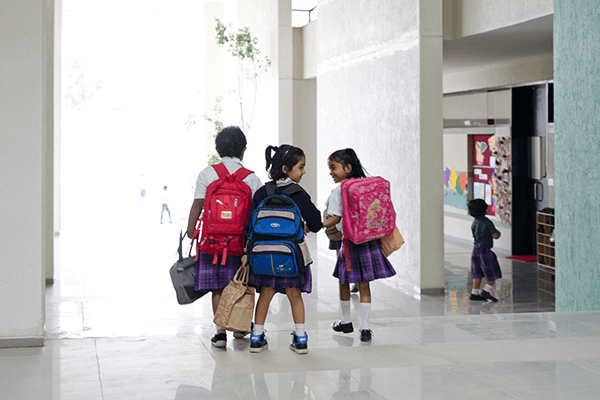 The admission process is quite simple. Parents just need to check the age requirements for various classes and obtain the online or offline application form. They can tour the campus or experience a trial class to get familiar with the institutions.
The duly filled application form has to be submitted to the school with mandatory admission documents (like birth certificate, previous academic records, ID proof of parents, vaccination card, caste certificate, and student photographs) along with the application fee. Following this, students are called for assessment, which includes a written test and an interactive session with the management. The application is accepted based on the child's performance. Thereafter, parents can pay the fee to enrol their child.
Choosing the right school could have a long-lasting impact on your child's future. Therefore, parents should acquire detailed information, ask the right questions and get feedback from the locals. Select a school that takes ownership of your child's learning.
The admission process is quite simple. Parents just need to check the age requirements for various classes and obtain the online or offline application form. They can tour the campus or experience a trial class to get familiar with the institutions.
The duly filled application form has to be submitted to the school with mandatory admission documents (like birth certificate, previous academic records, ID proof of parents, vaccination card, caste certificate, and student photographs) along with the application fee. Following this, students are called for assessment, which includes a written test and an interactive session with the management. The application is accepted based on the child's performance. Thereafter, parents can pay the fee to enrol their child.
Choosing the right school could have a long-lasting impact on your child's future. Therefore, parents should acquire detailed information, ask the right questions and get feedback from the locals. Select a school that takes ownership of your child's learning.
Ekya, one of the best schools in Bangalore, is the right choice for your child because it is where your child will live their lessons every day. Get in touch to discuss your child’s growth opportunities with us.



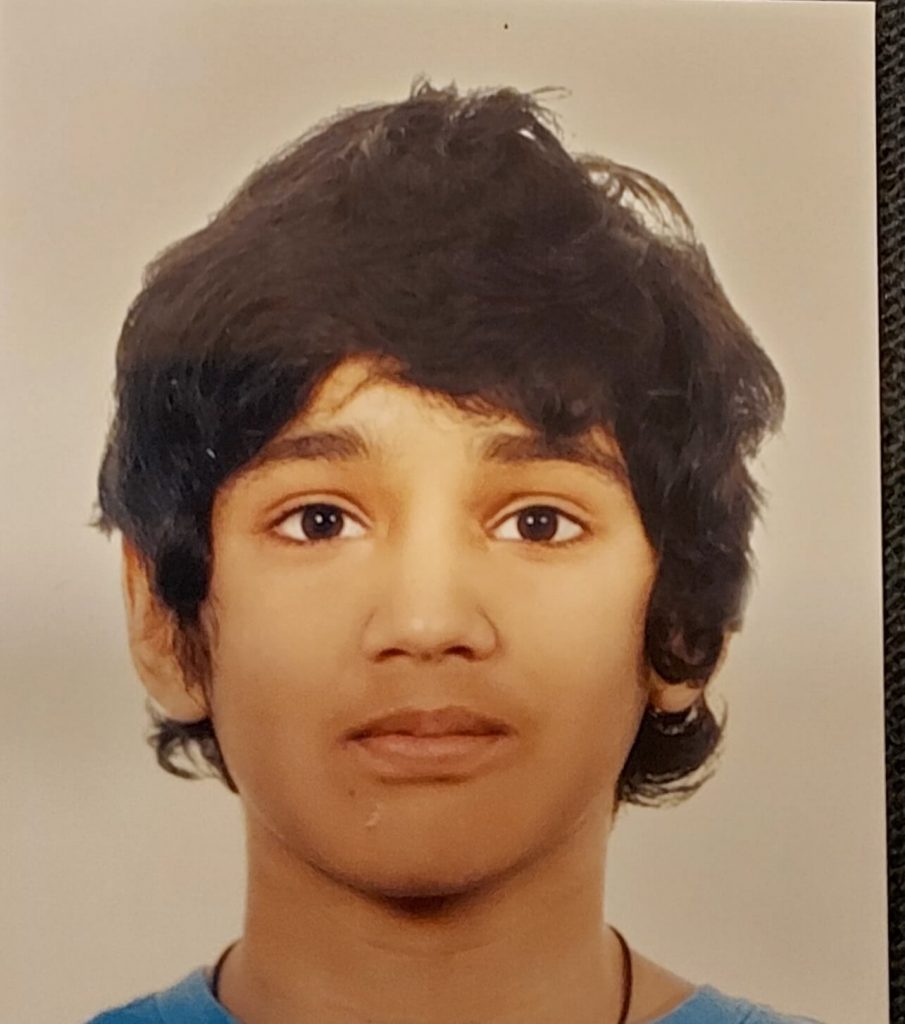





Leave a reply